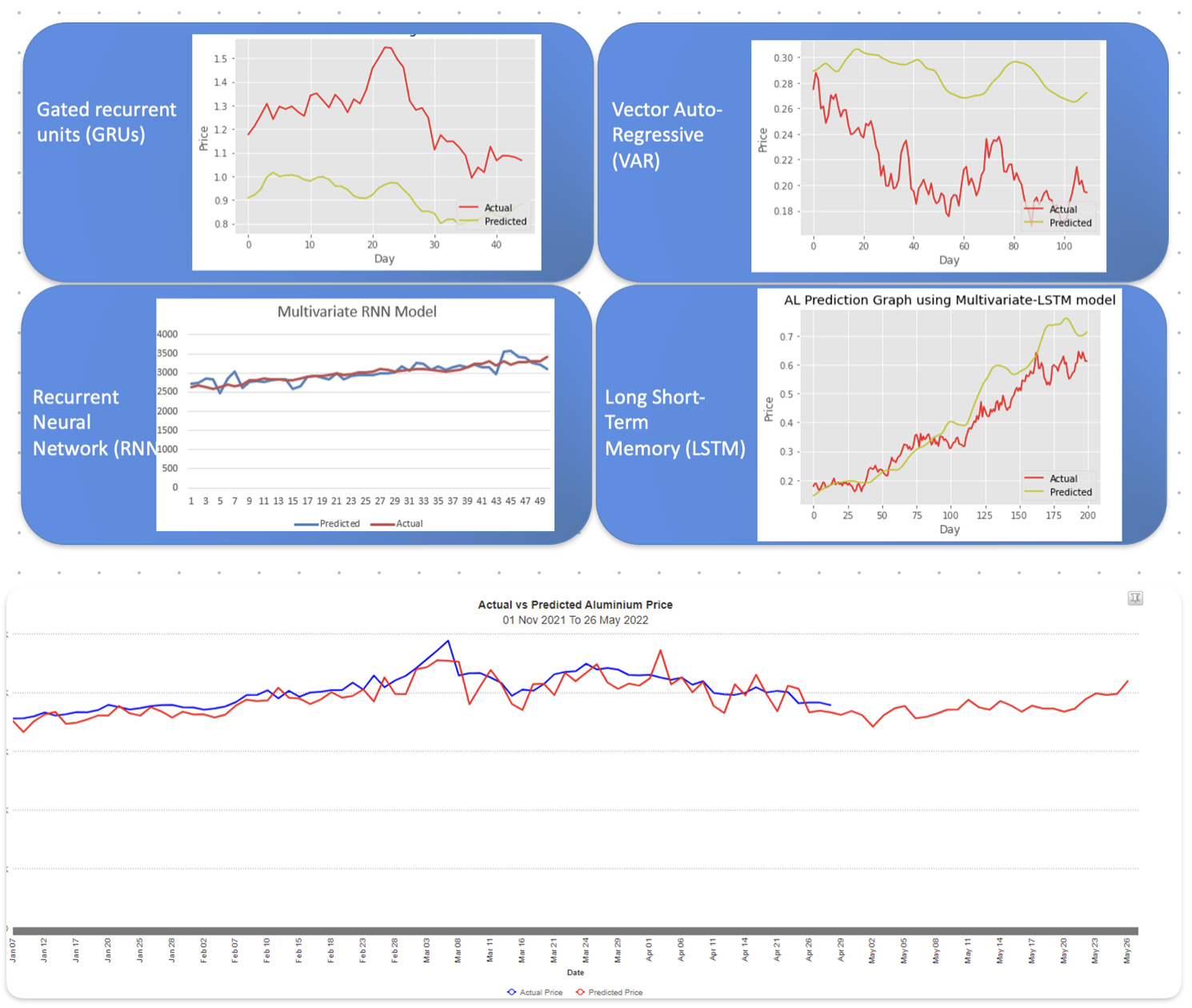
-
Project Title
Commodity Price Forecasting
-
Timeline:
20 Days
-
Tech Stack:
Python
-
Demo Link:
-
Client Name:
Project Detail:
This project aimed at predicting commodity prices using advanced data science techniques. The overarching objective was to provide a reliable forecast irrespective of the market's inherent volatility, ensuring better planning and decision-making for businesses involved in commodity trading and commodity hedging.
Problem Statement:
The challenge lies in forecasting commodity prices in a market characterized by high volatility. Traditional models often fail to account for sudden market changes, leading to inaccurate predictions.
Solution:
We constructed a multivariate model that utilized data from various outsourced sources. By integrating diverse data points, the model was capable of comprehending the multifaceted nature of commodity markets. The results exhibited a 93% accuracy rate in general market conditions (8-12% volatility). Remarkably, even during periods of heightened volatility (up to 21%), the model maintained an accuracy of approximately 88%.
Features:
- Dynamic Dashboard: Real-time visualization of forecasts with historical data comparison.
- Adaptive Model: Adjusts to volatile market conditions to provide resilient accuracy.
- Data Integration: Capability to integrate and process data from diverse outsourced sources.
Use Cases:
- Commodity Traders: Enables traders to anticipate market moves and adjust their strategies accordingly.
- Financial Analysts: Provides a tool to better understand market dynamics and prepare more accurate financial forecasts.
- Supply Chain Managers: Assists in better procurement planning by anticipating price changes.
Data Science Specific Points:
- Data Collection: Data was aggregated from multiple outsourced vendors. This includes historical price data, global economic indicators, and other relevant factors influencing the commodity market.
- Data Analysis: We utilized a combination of time series analysis, deep learning algorithms, and traditional regression techniques to make sense of the diverse data.
- Results: Our multivariate model achieved an impressive 93% accuracy in general market conditions and maintained an 88% accuracy even in extreme volatility conditions.
Technologies Used:
- Python (for data processing and modeling)
- TensorFlow & Keras (for deep learning)
- Tableau (for dashboard visualization)
- Scikit-learn (for traditional machine learning models)
- SQL (for data storage and retrieval)
- Refinitive, Investing.com (for external data sourcing)